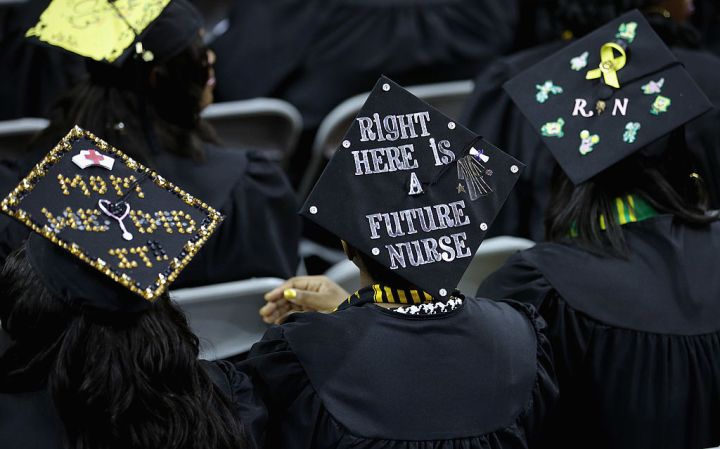
Historically Black colleges and universities face new financial hurdles
Historically Black colleges and universities face new financial hurdles

Usually by this point in the summer, Sidney Evans, the chief financial officer at Morgan State University in Baltimore, has the budget nailed down. “I typically have certainty around a number of very critical components to the university’s financial position,” he said.
The pandemic has brought nothing but uncertainty, at a time when many schools are already struggling. Many colleges and universities still haven’t figured out the fall term, much less the long term. The only thing they’re all ready for is a financial blow. And that could land especially hard on the nation’s 100 or so historically Black colleges and universities, which often operate with fewer resources.
One of those resources is tuition. Enrollments are down, which means less revenue. And at HBCUs, tuition is already often lower than at predominantly white schools. “That puts us behind the eight ball from the very beginning,” Evans said.
Plus, HBCUs don’t typically take in as much in donations. On average, their endowments are 70% smaller than those of other schools. “It’s a big amount,” said Marybeth Gasman, who directs the Rutgers Center for Minority Serving Institutions. “And what that tells us is that they just don’t have the safety net that non-HBCUs often have.”
Schools’ economic struggles can reflect systemic ones. “You know, a lot of times I’ll hear people say, well, alumni don’t give to HBCUs or people don’t give to HBCUs,” she said. “And one thing that we have to remember is African Americans don’t have the same kinds of assets.”
Though the pandemic is a new problem, HBCUs’ financial struggles are not. And they’ve weathered storms before. To get through this one, they’re focusing on keeping students safe, and enrolled. At Morgan State, for instance, classes will be a mix of in-person and online. Student housing will expand beyond dorms to apartments and hotels near campus. And there will be more counselors available to help students deal with pandemic-related stress.
“The fact that HBCUs do know how to do more with less, I think that may put HBCUs in an even stronger position to withstand some of the burden,” said Ivory Toldson, president of the nonprofit Quality Education for Minorities and a professor at Howard University.
In fact, schools may see enrollment go up, with the ongoing protests against police brutality and systemic racism. Studies show that after periods of racial unrest, more people apply to HBCUs. “There’s some optimism that more of that could happen as students are trying to find a place where their cultural identity will be affirmed,” Toldson said.
It’s a sentiment that goes back more than 180 years to the founding of America’s first historically Black college.
There’s a lot happening in the world. Through it all, Marketplace is here for you.
You rely on Marketplace to break down the world’s events and tell you how it affects you in a fact-based, approachable way. We rely on your financial support to keep making that possible.
Your donation today powers the independent journalism that you rely on. For just $5/month, you can help sustain Marketplace so we can keep reporting on the things that matter to you.


















